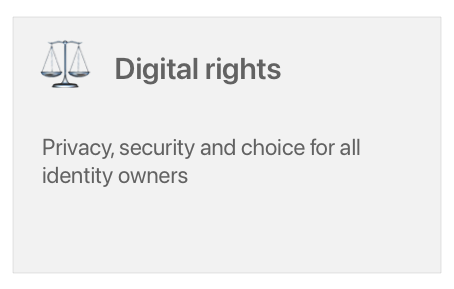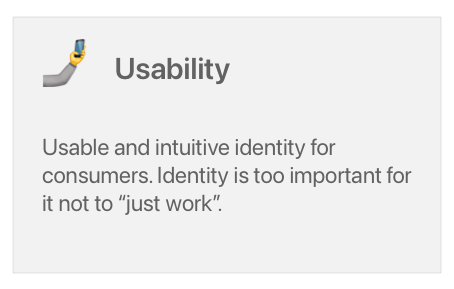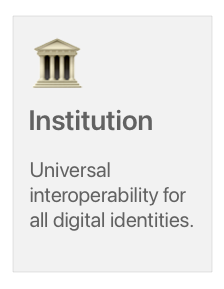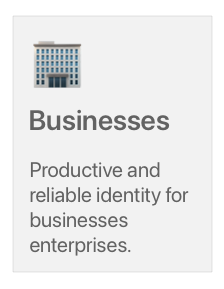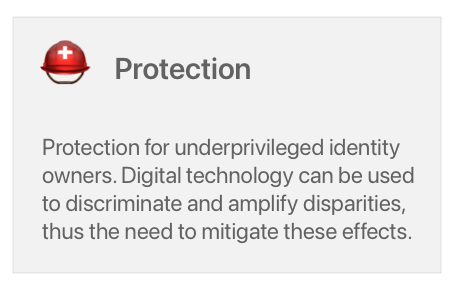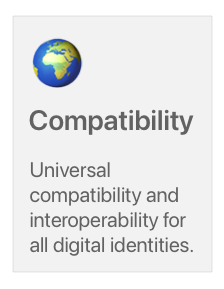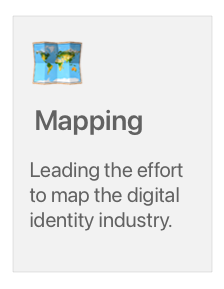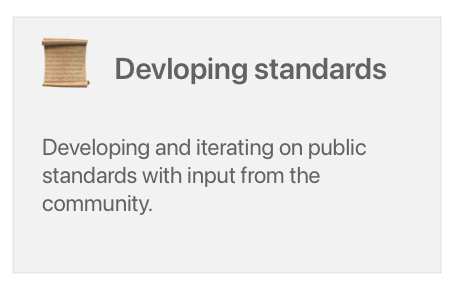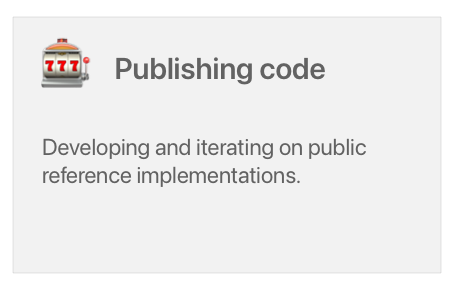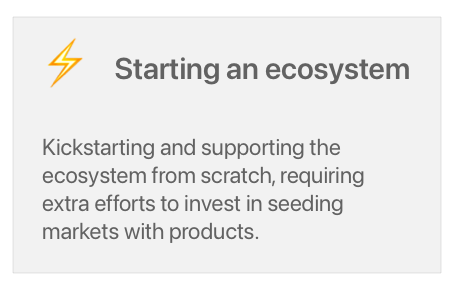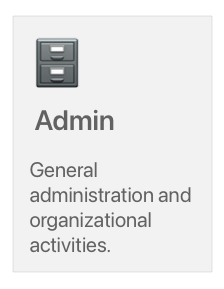Who we are
We are a pre-seed non-profit organization working on building the internet’s native identity layer. We are incorporated in the United States with 501(c)3 status. As such, all of our activities ultimately benefit the public, as can be observed from our causes and activities below.
Our vision
Universal Identity as the internet’s native identity protocol enabling majority of digital activities and transactions.
We believe Universal Identity will complement and enhance the web the same way the world wide web evolved the internet.
Our mission
We work to enhance everyone’s digital lives through inter-operability, privacy, security, and consumer choice.
Our causes
Our activities
Our approach
Universal Identity starts with the idea that “The internet should have a native identity layer”↗️, that similar to the web, should be a usable public good. It then focuses on the people and organizations that the technology is setting out to serve, defines the solution from their point of view, and works its way back through the various business and technology implications. See “Why Universal Identity?”↗️ for more details.
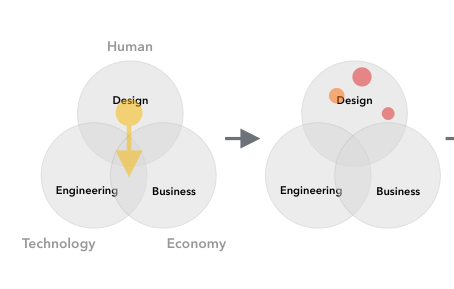
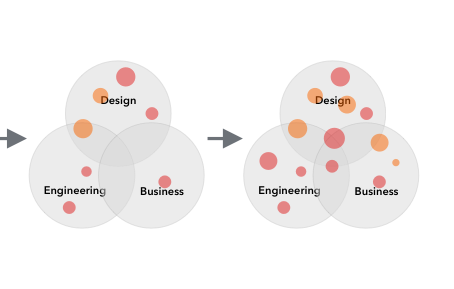
Causes
⚖️ Digital rights
All identity owners are entitles to rights such as privacy, security and consumer choice. Privacy refers to the ability to control what personal data is used or shared by others. Security refers to the level of protection users get against digital vulnerability, being exploited every day by bad actors. Consumer choice refers to the bargaining and switching power users have when making decisions about using digital services.
🤳 Usability
Usability is one of the non-negotiable aspects of a next-wave decentralized digital identity solution, as it is required to win when competing against existing proprietary identity solutions currently on the market. Unfortunately most of the technology driven solution beign proposed are lacking in this department.
🏛 Institutions
Trustworthy identity for public institutions and members, such that the reputations of these entities are enhanced through transparency and by the use of public blockchains, in areas such as governance, budgeting and financials.
🏢 Businesses
Productive identity for enterprises and their stakeholders.
⛑ Protection
Protection for underprivileged identity owners. Digital tehchnology can be (and often has been) used to discriminate and amplify social, political and economic disparities, which has led to an increasing need to mitigate these effects. The technology is often part of the answer to such problems, however working through governance and policy issues remains a significant part also.
🌍 Compatibility
Universal interoperability for all digital identities be they for people, organizations, other entities, things, or machines. This level of compatibility, while maintaining a high level of security, ensures reduced costs at the macro level, and unlocks enormous levels of value as more effective and more innovative solutions are brought to a market unrestricted by lock-in and incompatibility.
Activities
🗺 Mapping the industry
Mapping the identity industry. We are leading the effort to map the digital identity industry, to better understand how to build a new ecosystem while mitigating past industry mistakes. This is done through mapping aspects such as sub-ecosystems, related industries, technology waves, personas, use cases, harm cases, products and features accross the ecosystem.
📜 Developing standards
Developing and iterating on public standards when it comes to a distributed and decentralized digital identity layer for the internet, with input from the community.
🎰 Publishing code
Developing and iterating on public reference implementations using common technology platforms that prove out the technologies with respect to common use cases in an end-to-end manner. These reference implementations can further enable ecosystem players to build upon existing work and achieve further efficiency as they help the rest of the ecosystem grow.
⚡️ Starting an ecosystem
Kick-starting and supporting the ecosystemfrom scratch, requiring many steps, such as initial drafting of technology standards, publishing of reference implementations using common technology platforms, as well as extra efforts to invest in seeding markets with products.
🗄 General administration
General administration activities within the Universal Identity non-profit organization and its board of director.


